Many times, throughout your career and life, you may be asked the question, “Can you tell me about yourself?” It can occur particularly in an interviewing context. Going through job interviews, it’s a standard first question. I am often asked this question, especially by prospective clients. It can also occur in networking situations or in meeting a new boss or co-worker.
How do you answer the question, “Tell me about yourself?”
Take the time to think about the story of your career. Now, this isn’t a way to replay your resume, rather it’s an expression of the achievements of your career, education, career branding and personal value proposition.
There are several advantages to putting together a career narrative:
Some jobs are now requiring career narratives as you apply for work. A written narrative about your past and what you’re bringing to the prospective job is important. In addition, a narrative will help you to facilitate coming up with that elevator pitch about yourself and what you bring to the table. Finally, the career narrative can also help you to update your resume and Linked In because it focuses on accomplishments and results-driven as well as branding and value proposition.
This exercise can help you to see all that you have accomplished to this point in your career and it can be illuminating.
Take some time out to put pen to paper, or fingers to keyboard, and focus on expressing this narrative, step by step:
1. Start by thinking about your education, training, certifications…all that you have learned. What influence has that had on where you are now and what you do? But what if you didn’t graduate from college? On the job training is also educational. Focus on the learnings acquired and how those have shaped you.
2. Now consider your work experience. If you’re still in school or recently graduated, consider any part-time or temporary jobs you may have held. Think in terms of what you’ve most enjoyed, what has given you the most satisfaction? What stands out as significant accomplishments? You want to focus on writing about results and outcomes, not just activity, but there is a place for this as well.
3. Consider your strengths and weaknesses and write these down. This is also useful because you will usually be asked questions about this in an interview. When addressing weaknesses, be sure to also address how you are or want to address these in the future.
4. What do you have a passion for doing? What are your short and long term career goals? What’s important or relevant about those goals to you? How do these goals align with your education and experience?
5. Think about career brand and value proposition. Career brand is best defined as your specialties, your service, what you’re known for. What are those things that others have given you positive feedback around? Value proposition defines those unique and remarkable characteristics that make you stand out from the rest. What are those things that make you the best candidate for the job you’re in or that you’re going for?
6. Review what you’ve written. How can you synthesize this into a pitch about yourself? An example might be talking about past experiences and proven successes, strengths, abilities, and current situation. Example for myself: My background has been in senior technology management for a Fortune 100 corporation, focused on results that saved expenses and leveraged innovative new processes and technologies. I loved technology and leadership, but it’s the people that have always made a difference for me. Leading, coaching, and mentoring individuals. This led to my next step as a career coach entrepreneur, where my branding is “Untangling career challenges and choices through coaching for courageous results-oriented clients who need solutions NOW.” I make a difference in coaching you through a change in your career or life.
7. Do you need to incorporate any of these changes into your resume and Linked In? If you haven’t updated these in a while, it’s a great time to work on this.
ACTION CHALLENGE
The career narrative is an important step in defining what you’re all about. Take some time to prepare this important document for your career.
I would love to hear your thoughts.

